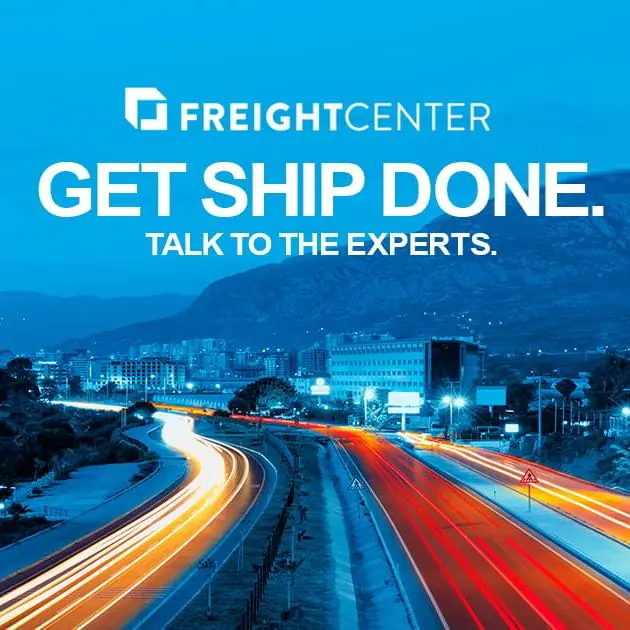
Expected B2C eCommerce Trends Post-Pandemic
Welcome to our article that delves into the world of e-commerce and its post-pandemic trends. We aim to provide you with valuable insights on the expected B2C e-commerce trends, understanding the concept of e-commerce, and the benefits it holds for businesses of all sizes.
Understanding e-Commerce
E-commerce is here to stay and leads the way of the future for both large and small businesses. The term E-Commerce is short for electronic commerce. E-Commerce refers to buying and selling goods or services online and is the electronic trade of products, services, and information between businesses and consumers.
Part of the reason E-Commerce has become so attractive and popular with consumers is that it overcomes previous barriers of the past. All transactions are completed online through various electronic platforms, including websites, apps, social media, online markets, and more!
E-Commerce encompasses more than just retail sales, including online banking, ticketing, auctions, and digital downloads. The process allows browsing, product selection, payment, and efficient and convenient delivery services. Due to this market’s ability to reach customers worldwide 24/7, products and services are more accessible to more consumers than ever before.
The-e-commerce marketplace is ever-expanding, with a wider variety of products and personalized experiences. With the ability to read reviews and compare prices, customers can rest assured that they are making the right purchase. This marketplace sector has genuinely transformed the retail industry and consumer behaviors.
What is B2C e-commerce?
“B2C” refers to Business to Consumer e-commerce. This term refers to buying and selling products or services online directly between businesses and individual consumers. In this case, businesses are the “sellers,” and individuals are the “buyers.”
Transactions via this type of commerce are usually smaller than “B2B” (business to business) e-commerce, with the target consumer base being much broader to cater to a large variety of individualized needs and preferences. Examples of B2C e-commerce platforms include companies such as Amazon, eBay, and Alibaba and individual brand websites.
We provide competitive freight shipping prices and an all-inclusive, easy-to-use shipping experience for our customers. Exceeding our customers’ expectations results in thousands of satisfied customer reviews and repeat business. We believe in the power of our customer relationships. Check out FreightCenter reviews from real customers, and learn what they have to say about their freight shipping experience!
Awards and Endorsements
- 2021 Food Logistics’ Top Green Providers
- 2021, 2017 & 2016 Food Logistics’ Top Green Providers
- 2021 & 2018 Supply & Demand Chain Executives’ Pros to Know: Matthew Brosious
- 2020 & 2019 Top Food Logistics’ 3PL & Cold Storage Provider Award
- 2020 & 2019 Business Observer’s Top 500 Companies on the Gulf Coast
- 2020 & 2017 SmartWay® Transport Partner
- 2020 & 2017 Food Logistics’ Champions: Rock Stars of the Supply Chain
- 2020 Best of Palm Harbor Awards for Local Businesses
- 2017 Green Supply Chain Award from Supply & Demand Chain Executive
- 2017 Tampa Bay Business Journal Heroes at Work
- 2016, 2015, & 2012 Food Logistics Top 100 Software and Technology Providers
- 2013 Top 100 Great Supply Chain Partners by SupplyChainBrain
- 2012 TIA Samaritan Award Honorable Mention
- 2012, 2011 & 2010 TBBJ Fast 50 Recipient
- 2013, 2011, & 2010 Diversity Business Top Businesses

Partner with a Freight Provider You Can Trust
Finding the right b2b e-commerce solutions can take time and effort. FreightCenter uses technology to find the best carrier to do everything at the best rate. When supply chain logistics and order fulfillment become more than a simple project, FreightCenter can help small to large companies and businesses find the best options—from handling inbound deliveries from artisans to outbound deliveries to dealers or end customers.
Choosing FreightCenter
When you choose to work with us, you are choosing to make your shipping process seamless. Here are just some of the benefits working with our Third Party Logistics company will have on your shipping experience:
- When you partner with FreightCenter, a premier 3PL (Third Party Logistics) company with over twenty-four years of experience within the logistics industry, you are choosing success. Over the decades, our team has dealt with nearly every shipment imaginable. There is no shipment process we cannot help you with!
- FreightCenter employs a knowledgeable staff always willing to learn and grow with industry changes and advancements. We are ready to answer any questions you have throughout the entire process!
- We act as the middleman between you and your carrier; you do not have to worry about playing phone tag with your trucker. Your agent will directly communicate with you and your carrier, delivering any necessary information or updates between you.
- We secure the best transit carrier and route for you at the best price. There is no need to spend hours figuring out the logistics or searching for a worthwhile deal.
- We make it easy to ensure your shipments by guiding you toward the best providers. Whether you need full or partial coverage, we have you covered!
- We arrange the pickups and drop-offs while also making sure to track each shipment in transit. This ensures that you know where your packages are every step of the way!
Now what are you waiting for? Call FreightCenter to set up your account and discuss your shipment. We are ready to answer your questions and provide solutions! Our team looks forward to partnering with you. A FreightCenter agent can guide you in the best direction for all your shipments. Start by getting a free online quote, or call us at 800.716.7068.
Pandemic Era Marketplace
During the pandemic, e-commerce sales skyrocketed. Due to the ease, accessibility, and convenience of online shopping, and stimulus checks, retailers like Walmart experienced more significant sales than ever, with their YoY sales rising over 37% and doubling in two years. Consumers who previously shopped online for less than 25% of purchases increased by 343%. A study published by Adobe in 2020 showed that the pandemic expanded e-commerce growth by 77%. US eCommerce grew 44% in 2020 as consumers spent over $860 billion online.
These staggering stats converted many businesses from standard brick-and-mortar to online storefronts. With sales peaking online, e-commerce transformed previously offline customers into loyal online shoppers. With services such as online shopping, curbside pickup, and food delivery galore, who could resist the new and convenient marketplace frontier? Covid-era 2020 was a significant year in e-commerce.
The growth of the online marketplace can be attributed to various factors aside from the credit given to social distancing measures and lockdowns. These factors include convenience, tech improvements, social media, SMB e-commerce, and Amazon. The pandemic taught small businesses to shift to the online marketplace, as they were often hit the hardest during the extended shutdowns.
Using platforms such as Wix, Squarespace, and Etsy made shifting business online possible, with the ability to grow and thrive a reality. It was even predicted during this uncertain time that the trend would expand post-pandemic. Before Covid-19, e-commerce had grown steadily, but the pandemic would eventually turn future business plans upside down, with the new business standard nearly mandating a website and e-commerce store. Many changes to e-commerce were driven by pre-existing trends that were suddenly required to keep companies afloat.
There is no question the pandemic turned many supply chains and businesses on their heads. But how will the trends in B2C eCommerce and other current market conditions impact business? While global circumstances and technology constantly change and the future is uncertain, we have put together a few “to-be-expected” B2C eCommerce trends post-pandemic. This compilation of post-pandemic marketplace trends will help guide your business toward shipping success.
eCommerce is Here to Stay
We are sure you have heard the phrase “new normal” a million times and probably have even uttered it yourself. But terminology aside, understanding the “new normal” for e-commerce is necessary for your customers and is no longer a premium luxury service. E-Commerce, online shopping, and digitalized freight shipping management are all expected to be the industry standards for years and years to come. If one logistics area succeeded last year, it was eCommerce.
Some key factors your business must ensure post-pandemic include accessibility, convenience, and purchasing speed. Without consideration for these variables, your business risks falling behind the competition. Customers now expect this level of top-notch service 24/7; Categories and services such as accessibility to BOPIS (Buy Online, Pickup in Store), mobile check-out, and broader product/service categories.
E-commerce demand is expected to remain, with most people able to navigate online shopping easily and now having heightened marketplace expectations. The new customer demands a seamless shopping experience throughout an omnichannel, meaning user-friendly shopping experiences across a company’s platforms.
Consumer behaviors have shifted permanently due to the pandemic. It’s essential to know how to manage customer shipping expectations moving forward and make the most out of eCommerce shipping so it is an established practice within your supply chain. Speaking of changing customer expectations, Metapak conducted a survey that delivers deep insights into what people want from delivery:
- 38% of consumers surveyed said they would never shop with a retailer again following a negative delivery experience.
- 60% of customers have chosen a competitor who offered better delivery options.
- 74% of surveyed rated free shipping as an essential feature during check-out.
- 45% of shoppers abandoned a shopping cart because of inadequate or disappointing delivery options.
To create value for our customers by delivering customized shipping solutions that meet their unique needs and to fulfill shipping demands from simple to complex with expertise, guidance and ingenuity.
LTL shipping involves combining multiple small shipments from different customers onto one truck, allowing each customer to share the shipment cost. Trust the experts at FreightCenter to give you the best prices and the most comprehensive options for all your LTL freight shipping needs.
Truckload shipping, also known as full truckload (FTL), is a transportation option for freight that requires the entire trucks trailer space. Unlike LTL shipping, FTL shipping is reserved for larger commodities that exceed LTL weight and size limits, typically weighing more than 20,000 pounds or having dimensions that exceed 12 feet in length, 8 feet in width, and 8 feet in height. We deliver optimized solutions for full or partial truckloads and competitive dry van, flatbed, and refrigerated freight pricing. We can cover your full truckload shipping needs.
Nationwide Expedited Trucking services move your freight securely and rapidly. Your freight requires fast delivery; our freight shipping experts can get your shipment fast, whether in one large box or a full truckload. Expedited shipping is a transportation option that prioritizes the speed of delivery for freight that needs to be shipped quickly. This can be especially important for urgent situations, such as engine repairs or replacements for critical machinery.
Easily access the most dependable rates for Specialized Freight Services from leading carriers in just a few simple steps. Whether you require white glove service or international shipping, we've got your needs fully covered.


